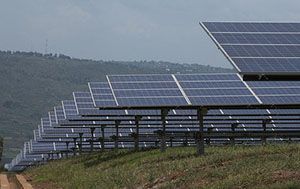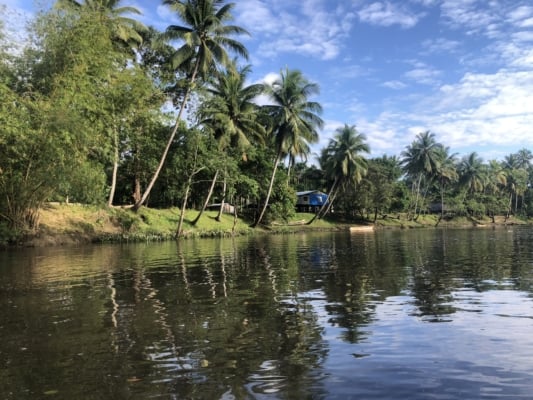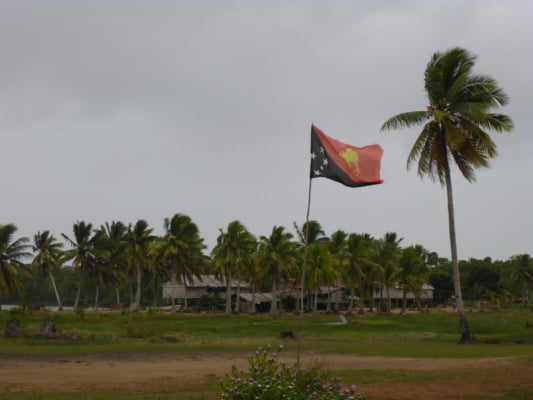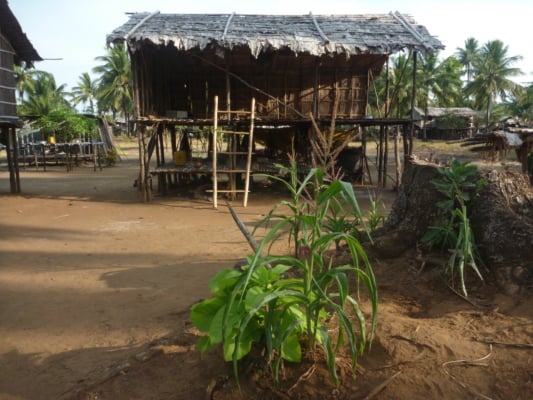Image: Power in the city (J Endres); a new solar power plant in Rwanda (AGI).
The World Bank launched its flagship World Development Report (WDR) this week, which boldly redefines how governance and policy interact to yield good or bad development outcomes. People are rightly praising the report for rejecting best practices, embracing adaptation and endorsing a focus on politics.
However, my concern is the report, in combination with a recent paper by Stuti Khemani and Shanta Devarajan which was influential in the WDR’s analysis, could accelerate the current development focus on seeking to control rather than energize government. If we do that, we’re unlikely to see the good governance revolution needed to achieve the Sustainable Development Goals.
The WDR hinges on a complex analysis of politics, including a thorough examination of how elite bargains take shape and evolve. The main ‘entry points’ for development organizations, the WDR argues, are to shift the rules of the game around those bargains or to support citizens to be ‘agents of change’.
But in the experience of my organization, the Tony Blair Africa Governance Initiative (AGI), we’ve found as we’ve worked with governments that politics is a complex mix of ‘power, interests, agency, ideas, building coalitions’. This means, counterintuitively, that there are actually more entry points for international actors than just rectifying political market failures. So I agree with Brian Levy’s critique that the WDR gives too limited airtime to ‘how it might be possible to achieve some development gains in difficult governance environments – taking a short-to-medium-term perspective, and without necessarily transforming the broader governance environment.’
Development organizations can support these gains – with the right approaches. AGI’s recent paper, Shoulder to Shoulder, offers a few reflections about what it takes for international organizations to do politically savvy work with governments.
Spend time with people
Kudos to the WDR for advocating a deeper understanding of domestic politics through the use of approaches like game theory and political economy analysis. But while these are critical they’re not sufficient. If individuals and coalitions have agency in government, then we also need to understand people. Research and reading alone can’t achieve this. It requires international development staff getting to know key people who hold political power – their personalities, agendas and what ‘makes them tick’ – by actually spending time with them.
Facilitate and broker
If we development organizations default to the view that governance and politics are a ‘problem’ to be fixed in order to ‘overcome obstacles in the policy arena’, that leads us to see our role as influencing government to improve what it does. But working collaboratively with government can be more effective.
For instance, in 2012, progress in Rwanda’s energy sector was being held back because the government had set an overly ambitious goal of generating 1000 megawatts of power by 2020. This led to an inability to prioritize and a failure to secure private investment.
AGI worked with Rwanda’s Ministries of Energy and Finance along with the energy utility and President’s Office on a cross-government demand forecasting exercise. The process took a long time but, because it was genuinely participatory, the result was these key government institutions jointly agreeing to a significantly reduced target. Several other development partners had previously commissioned consultancies to produce reports to criticize the government’s 1000 megawatt goal, but it was a process that worked in alignment with government politics that led to real change.
Since the target reduction, Rwanda has been able to prioritize, leading to 150 megawatts of new generation financed by the private sector. Rwanda now has three times more electricity available than it did in 2012.
Hire people who can work in these ways
The WDR notes that some development organizations are implementing ‘internal reforms as they seek more agile, more flexible, and more adaptive projects’. That’s excellent news. For this to work, however, organizations must have staff with the right skills and approaches: the ability to build trusted relationships, to be resilient and adaptive, and to work within local culture.
How do you make sure you have staff with these subtle but essential abilities and ways of working? This is hard to teach, so at AGI we put a lot of effort into hiring people who already have these capabilities and approaches; for example, we use interactive case studies during interviews. We’ve also developed a learning program called ‘CraftWork’ which aims to improve our staff’s ability to understand and navigate political environments through activities ranging from coaching to team-based problem-solving sessions.
The 2017 WDR offers a compelling new framework for governance. But if a result of the report is development organizations stepping back from supporting governments, it will be citizens around the world who lose out.











